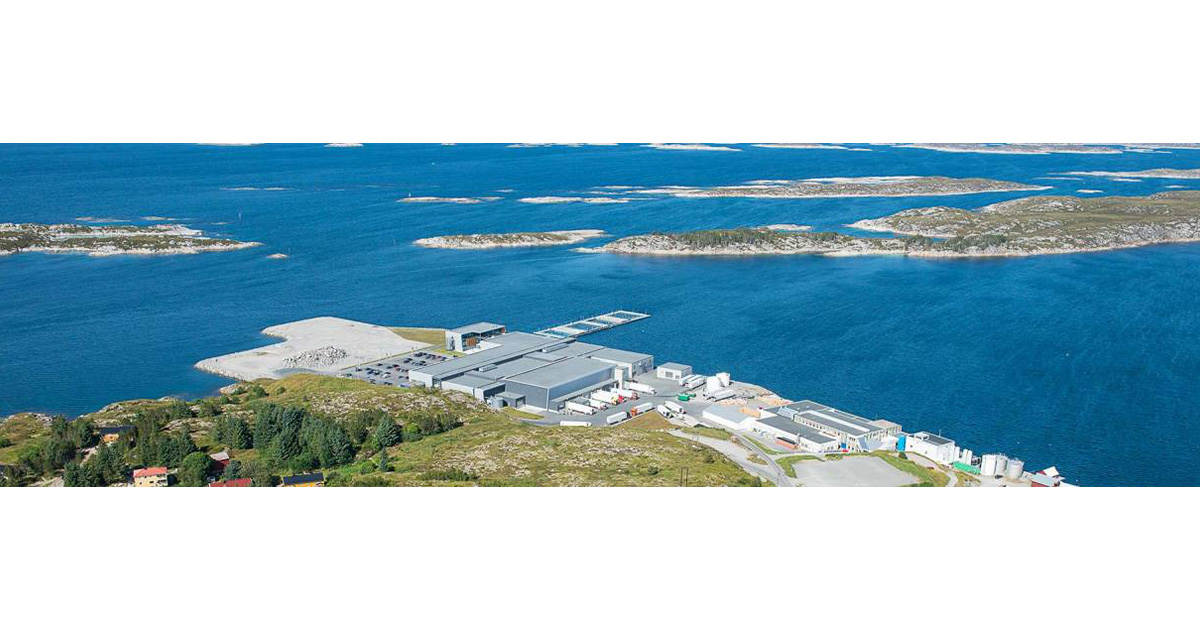- Limited growth in supply of Atlantic salmon combined with strong demand for healthy and nutritious food gave record high salmon prices, which resulted in a strong start of the year for SalMar.
- Operational EBIT for the group was NOK 1,884 million in Q1 2023. Total harvest was 48,500 tonnes. Operational EBIT per kg was NOK 38.8.
- Operational EBIT for Norway was NOK 1,725 million. Harvest volume was 42,000 tonnes, and operational EBIT per kg was NOK 41.1 per kg.
- Fish Farming Central Norway reported strong quarter with lower costs and favourable harvest profile. Fish Farming Northern Norway delivers good results, although partly offset by a large share of harvest volumes with higher cost base from NRS.
- Sales and Industry showed strong underlying operational performance from its harvesting and processing facilities, demonstrating ability to optimise utilisation of raw materials. Contract share was 25 per cent, with negative contribution.
- Icelandic operations achieved record-high harvest volume and continued good results.
- Low quarterly volumes from Scottish Sea Farms with improved results compared to previous quarter
- SalMar Aker Ocean’s Ocean Farm 1 was transported back to its location at Frohavet and started its third production cycle early May 2023.
- NTS, NRS and SalmoNor were successfully merged into SalMar’s operational structure, following the successful transactions in Q4 2022. By Q1 2023, NOK 425 million in recurring annual synergies had already been captured, representing 63 per cent of the previously announced goal of NOK 671 million.
- Compulsory acquisition of all remaining shares in NTS completed in January 2023 and strong incoming interest for the ongoing strategic review of ownership in Frøy ASA.
- SalMar keeps all production volume guiding for 2023 unchanged.
Limited supply growth drove the price of Atlantic salmon to record heights in the first quarter of 2023 and resulted in solid profits for SalMar. SalMar CEO Frode Arntsen is, however, quick to point out other achievements, which are more important when assessing the company’s performance and position, and its capacity for growth.
“Amid great political uncertainty, our employees have done an exemplary job in combining the businesses of SalMar, NTS, NRS and SalmoNor, and capturing synergies. At the same time, great operational performance has been achieved across our business, within farming as well as in sales and industry, in Iceland and in Scotland. That is telling for the quality and commitment of the people in our company,” Mr. Arntsen said.
“Together, we are building a great platform for continued jobs and value creation along the coast, which we hope will benefit the many communities in which we operate, our employees and their families, and our lenders and shareholders,” he added.
Resource Rent Tax
Like the rest of the aquaculture industry, SalMar is deeply concerned about the proposed new resource rent tax on Norway’s fish farmers. The Norwegian parliament, the Storting, is being invited to approve an almost threefold increase in the marginal tax rate on a business sector that is the economic mainstay of many coastal areas and that operates in a highly competitive global market. The proposed increase from 22 per cent to 57 per cent is based not only on a complicated new tax model whose repercussions have not been subject to any proper impact assessment, but is also planned to have ex post facto effect. No other country has imposed anything even vaguely resembling this on a part of its food production sector, including seafood.
On this basis, SalMar has found it necessary to shelve all major new investments in Norway going forward. The design and level of the tax proposal will impact large parts of the coastal business community, severely curtailing investments in land-based industry activities in particular. The Norwegian government’s new calculations underline the massive scale of the confiscation of investment capital that the proposal will entail. This will sharply reduce opportunities to finance future industrial projects and job creation in Norway, with investments in other countries being correspondingly favorized. The Storting’s decision with respect to the tax proposal will, in other words, have substantial ramifications for the Norwegian aquaculture and industrial sectors in the time ahead. As the country’s highest decision-making authority, the Storting, and the Finance Committee on its behalf, therefore, shoulder a heavy national responsibility as they embark on their consideration of this proposal.
Outlook
SalMar expects a limited increase in global supply of Atlantic salmon in 2023 compared to 2022. SalMar keeps its harvest volume guiding for 2023 unchanged. Harvest volume in Norway is expected at 243,000 tonnes, in Iceland 16,000 tonnes, and in Scotland 37,000 tonnes.
For the second quarter of 2023, the company expects slightly higher volume and similar cost level in Norway. While in Iceland it is expected very low volumes. Contract share for the second quarter and full year 2023 is expected to be around 25% and 12%, respectively.



